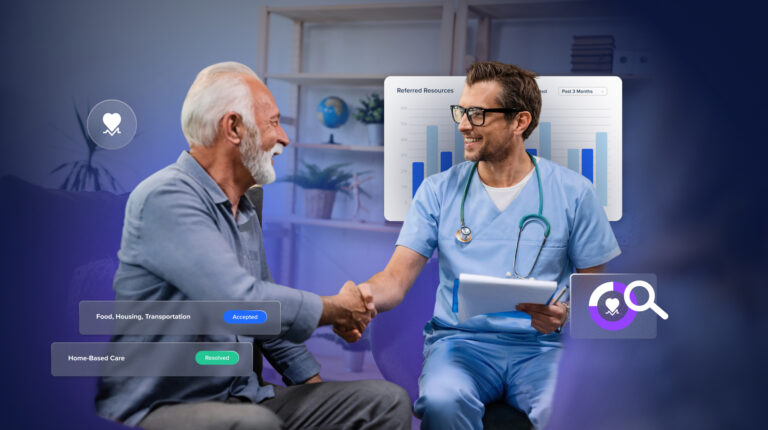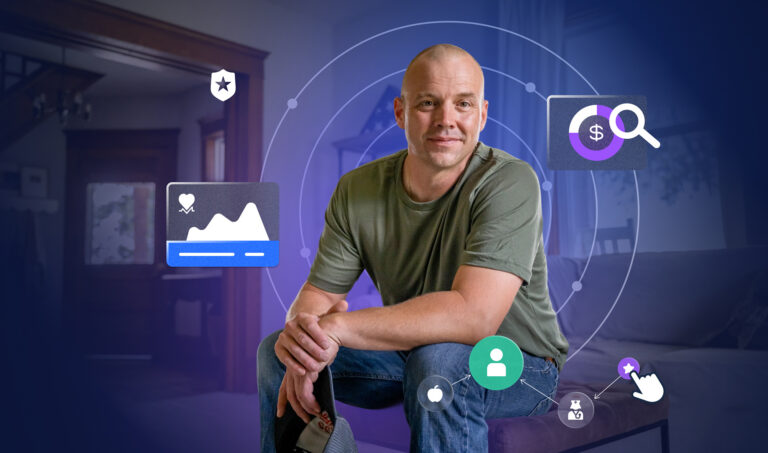
Top 4 Trends to Watch in 2019
2018 was a transformational year: states, health systems, health plans, and community based organizations (CBOs) shifted their efforts and priorities towards value-based care, community – clinical collaboration, and the social determinants of health. Unite Us is proud of our 2018 partnerships and we are eager to continue our work with stakeholders across public, private, and non-profit sectors in 2019. As we prepare for the new year, we’re anticipating a few leading trends in relation to the health and human services sector.
1. Health systems & plans will make big investments in SDOH.
As research and evidence continues to grow with regards to the impact of addressing SDOH, health systems and plans are accelerating their investments in programs and scalable infrastructure to support the holistic needs of their patients and members. It’s important to note that health systems and plans don’t just need technology, they need a proven partner who understands both the needs of the community and how technology brings value to them. In the end, health systems and plans want to bring the community closer and they need partners who can help them get there. As the largest systems and plans have invested in identifying their patients’/members’ social needs through mechanisms like screening, now they want to focus on addressing these needs to improve their health dramatically outside the clinical setting.
2019 will be the year to really move the needle on health outcomes and actually prove the economic impact of doing so.
2. Statewide SDOH infrastructure is accelerating.
Through the continued expansion of Medicaid, 1115 waivers, and growth towards managed care, we anticipate that more states will fund and implement statewide infrastructure to build systemic connections between healthcare and the community. In New York State, we’ve seen increased commitment to system wide transformation through DSRIP, which has now developed partnerships, programs, and new systems to deliver integrated whole-person care. North Carolina has invested in a statewide network, NCCARE360, to connect providers, insurers, government, and community-based organizations together to connect individuals to the services they need to be healthy.
We anticipate that other states will move in this direction to ensure they’re providing appropriate access to health, human, and social services.
3. Value-Based Care continues to grow as hospitals take on more risk.
The path towards value-based care has been a long one. However, with emerging initiatives like Pathways to Success, ACOs will have to take on downside risk sooner than anticipated. Though this rule does not impact all hospitals, it sets the tone for a new and strengthened era of value-based care. With this increased risk and a general consensus that value-based care is here to stay, other systems must invest in social infrastructure to support the holistic needs of their patients in order to deliver on outcomes. Health systems will then be looking for partners to extend traditional clinical networks into the community and support these partnerships with technology to measure their impact.
4. Implementation of new payment models that include community-based organizations.
In 2018, we saw a huge increase in partnerships among CBOs and healthcare. However there is an underlying need for sustainable payment models to include CBOs into patient care. This year, we have heard from many of our partners and others across the country that the long-term viability of these collaborations will depend on CBOs eventually being paid for their services.
That being said, both health plans and systems will explore and experiment with varying incentive models and payment mechanisms in 2019. These proof of concepts will hopefully transition into scalable options for fee for value models.
To learn more about Unite Us and our technology please contact us below:



